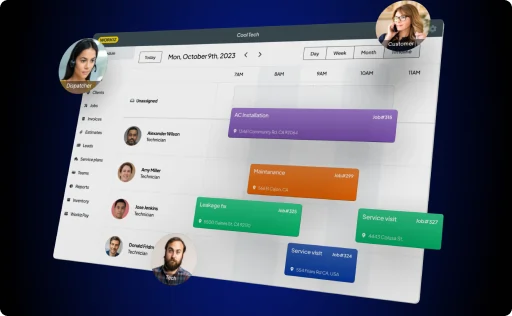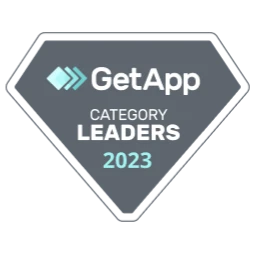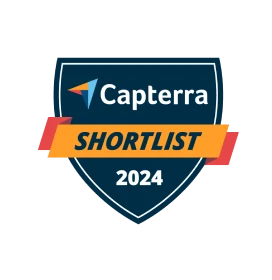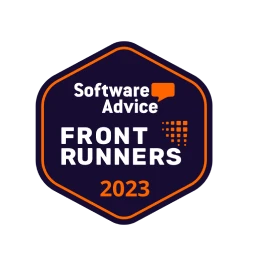According to data provided by the U.S. Bureau of Labor Statistics, there are 482,700 U.S. plumbers and 15,120 in employment within the state of North Carolina alone. This number will increase positively by 2 percent from the years 2022 through 2032.
Taking the role of a plumber requires you to invest much time in learning this particular trade. Next will be to acquaint yourself with the governing laws and requirements of the area where you are staying. Of course, all these processes result in you acquiring your plumber license. In this article, we shall discuss how you can acquire a North Carolina Plumber license.
Plumber jobs over time
North Carolina plumbing license lookup
Are you in North Carolina and need to verify the licensing status of your plumbing professional, you just need to utilize the lookup tool available on the North Carolina State Board of Examiners of Plumbing Heating and Fire Sprinkler Contractors website. With its finder for licensed professionals and a function that displays good standing with the state, you can easily look up yourself and individuals who have been licensed in the practice. The NCBPHFS has a database for licenses maintained and available to the public online.
Consumers must have access to this lookup tool to verify the credentials of a plumbing contractor in advance of hiring. The need is to ensure that the plumber has met the minimal qualifications and follows state statutory and regulatory provisions. This tool may also help contractors/businesses verify the licenses of their potential employees or subcontractors.
North Carolina plumbing license requirements
To get your North Carolina plumbing license, you must meet the following requirements:
- Age: 18+
- Education: You don’t need much, just get your High School Diploma or its equivalent like your GED.
- Work Experience: You must have at least worked as an apprentice for four consecutive years under a licensed plumber.
- Examinations: It requires you to pass a plumbing licensing examination administered by the NCBPHFS.
An important way to find out if you’re eligible or if an applicant is capable or not is the experience requirement. One good thing that the apprentice program has to offer is exposure. For the apprenticeship program, you can choose that of North Carolina – Plumbing Heating Cooling Contractors Association of North Carolina. On enrolling, you have four-year plumbing and HVAC apprenticeships.
Process of obtaining a plumbing license in North Carolina
Get the needed experience
You need some level of experience to get a North Carolina plumbing license. Endeavor to get:
HVAC diploma or certificate program
You can search for a local HVAC training program that will provide you with what you need.
Formal apprenticeship
Get a formal apprenticeship with a union or trade organization locally.
Informal apprenticeship
Work as an assistant under the supervision of a qualified contractor.
Both will equip you with theoretical and practical knowledge and expertise in plumbing.
Apply for exam
After learning, apply for the exam. You must meet certain eligibility requirements before you enroll, such as 18 months of full-time, on-site experience in the installation, maintenance, service, or repair of plumbing or heating systems (3000 hours).
Submit application
After checking to see if you have all the requirements, submit your application to the North Carolina State Board of Examiners of Plumbing, Heating, and Fire Sprinkler Contractors with your proof of experience attached, along with the application fees.
Background check
It is general for all applicants to obtain a nationwide criminal history record report through “CastleBranch.com”. Therefore, attach a hard copy of this report to your application. Remember, being convicted of a crime does not mean your application will be denied. No need to fret, the board will consider several factors in your application.
Application review
If the board has issues with your application or they need more information from you, you’ll be notified. If you have been denied, you will also be notified. The notification will be done through an email – approval or rejection.
Schedule and take the exam
You are supposed to contact the exam provider to schedule your test after you get your notification of eligibility. You should take the exam within 30 days from your notification date.
Exam day
You will be notified immediately at the exam center if you pass or do not pass
Exam review
If you do not pass, you may attend an exam review held in Raleigh before re-taking the examination
License activation
You will need to activate your license if you pass the exam.
Submit licensing activation form
Complete the Licensing Activation form and attach the appropriate fee.
Obtain your license
The plumbing license will be issued to you when submitted by the NCBPHFS.
By following these steps, you can be sure of satisfying all requirements to become a licensed plumber in the state of North Carolina.
Types of plumbing licenses in North Carolina
North Carolina Has Different Licensing Types for Plumbing. The state of North Carolina offers different licenses related to plumbing work. All these licenses are categorized according to the nature of work and expertise. The following are all types in detail:
Class I unlimited plumbing contractor license
The Class I license has no restrictions on any residential or commercial plumbing project, regardless of size or complexity. This license requires a broad working knowledge of plumbing systems and codes. Examples include potable water and drain, waste, and vent piping systems in any building.
Class II (Limited) plumbing contractor license
The Class I license has no restrictions, while Class II is much more limiting and restricts the license to plumbing projects by their size and complexity. This license type would be best suited to plumbers working on relatively small or less complex types of projects, mostly involving single-family, detached dwellings. Examples include potable water and drain/waste/vent piping systems in single-family detached dwellings only.
RLP restricted limited plumbing contractor license
This license restricts you to residential plumbing only. If you’re a plumber looking to specialize in home plumbing systems, this is for you. It involves new installations, repairs, and maintenance. However, you must note that the RLP license allows you to perform on the house exteriors too. It can involve exterior backflow preventers on piping (2″ or less). water filtration system, exterior building sewer piping, and exterior water service piping (2″ or less).
Plumbing technician license
A Plumbing Technician works under the direct supervision of a licensed contractor—a Class P-I, P-II, or RLP Contractor. This license allows you to work on potable water and drain/waste/vent piping systems but is not a contracting license.
All types of plumbing licenses in the state of North Carolina share general requirements that must be satisfied to be rendered eligible. The following are the eligibility factors:
Contractor
To be eligible to take this Plumbing, Heating Group 1, 2, or 3 Contractor License exam, you will need:
Experience
4,000 hours of on-site, full-time experience in installation, maintenance, service, or repair of plumbing or heating systems relating to the license category to which you are applying.
Education substitution
You may substitute, with appropriate academic or technical training directly related to the field, up to fifty percent of the required experience as outlined above equivalent to forty-five quarter hours or thirty semester hours of education.
Technician
Here, you’ll need:
Experience
18 months (3,000 hours) of full-time, on-site job in the installation, maintenance, service, or repair of plumbing, or heating systems related to the kind of license you have chosen. For the fuel piping license, you’ll need 9 months of full-time, on-site job in the installation, maintenance, service, or repair of fuel piping systems.
Electrician salary over time
Reciprocity for North Carolina plumbing license with other states
North Carolina has no state with which it has reciprocity agreements. However, there’s a Technical Examination Waiver Agreement with South Carolina for plumbing and HVAC contractors. But, they must still pass the North Carolina business law exam. Further details on reciprocity agreements can be obtained from the NCBPHFS or any other board of licensure where one seeks reciprocal arrangements from.
Reciprocity agreements are aimed at simplifying the process through which plumbers who are relocating or working in more than one state get their licenses. This will particularly benefit those contractors whose businesses operate in regions closer to or around state boundaries and frequent changes of residency areas. It is important to make sure you understand what specific requirements regarding the terms of reciprocity agreements might be as they differ from one state to another.
North Carolina plumbing technicians license
The North Carolina Plumbing Technicians License provides licensure for specific plumbing tasks for those individuals working under a licensed contractor. This license requires fewer hours of experience in addition to passing a technical examination in the particular area one works in. This license is recommended to plumbers with expertise in one line or another because it involves pipefitting and fixture installation.
With the North Carolina plumbing technical license, you can perform several types of installations, repairs, and maintenance. You can install water heaters, and repair leaks alongside other maintenance services coupled with plumbing installations.
FAQs
If you want a plumbing license in North Carolina, you must:
- Be 18+
- Have a high school diploma or anything of its equivalent.
- Have four years of recorded apprenticeship experience and it must be under a licensed plumber.
- Then, pass the licensing examination.
Yes, you can look up the plumbing license in North Carolina. Visit their website to do so.
Only simple repairs and maintenance work await you without your plumbing license in North Carolina. However, if the tasks require major plumbing installations and projects, you need a license. You can take on tasks like fixing a leaky faucet or unclogging a drain.
There are so many factors that can affect the earning rate of licensed plumbers in North Carolina. Some of the factors can be specialization and experience. For example, a Journeyman plumber with more work experience will receive more salaries than one with a few work experience years. However, the U.S. Bureau of Labor and Statistics indicated that in 2020, the average annual wage plumbers and pipe fitters received was $56,330.
For anyone who wants to move to another state and still practice plumbing, but wonders if your North Carolina license still holds weight, there are some processes. The first thing to do is check if the state you’re moving to has a reciprocity agreement with North Carolina. Yes, not all states have this agreement. Well, North Carolina doesn’t have a reciprocity agreement with any state. You must meet all the requirements to get a plumbing license in the state.
A limited plumbing license in North Carolina only allows you to take small plumbing jobs. Once a big project or installation is involved, then, you need a license. Though it is only for small projects, to get it, you must meet some requirements, and then pass the specific licensing exam for your limited work scope. An example of this license type is plumbing jobs among residential projects.
Yes, there are several practice tests. You can also access study guides for your exam. Check the various educational platforms and the NCBPHFS website. Using these tests will help you improve your chances of passing the licensing exam on the first attempt.











